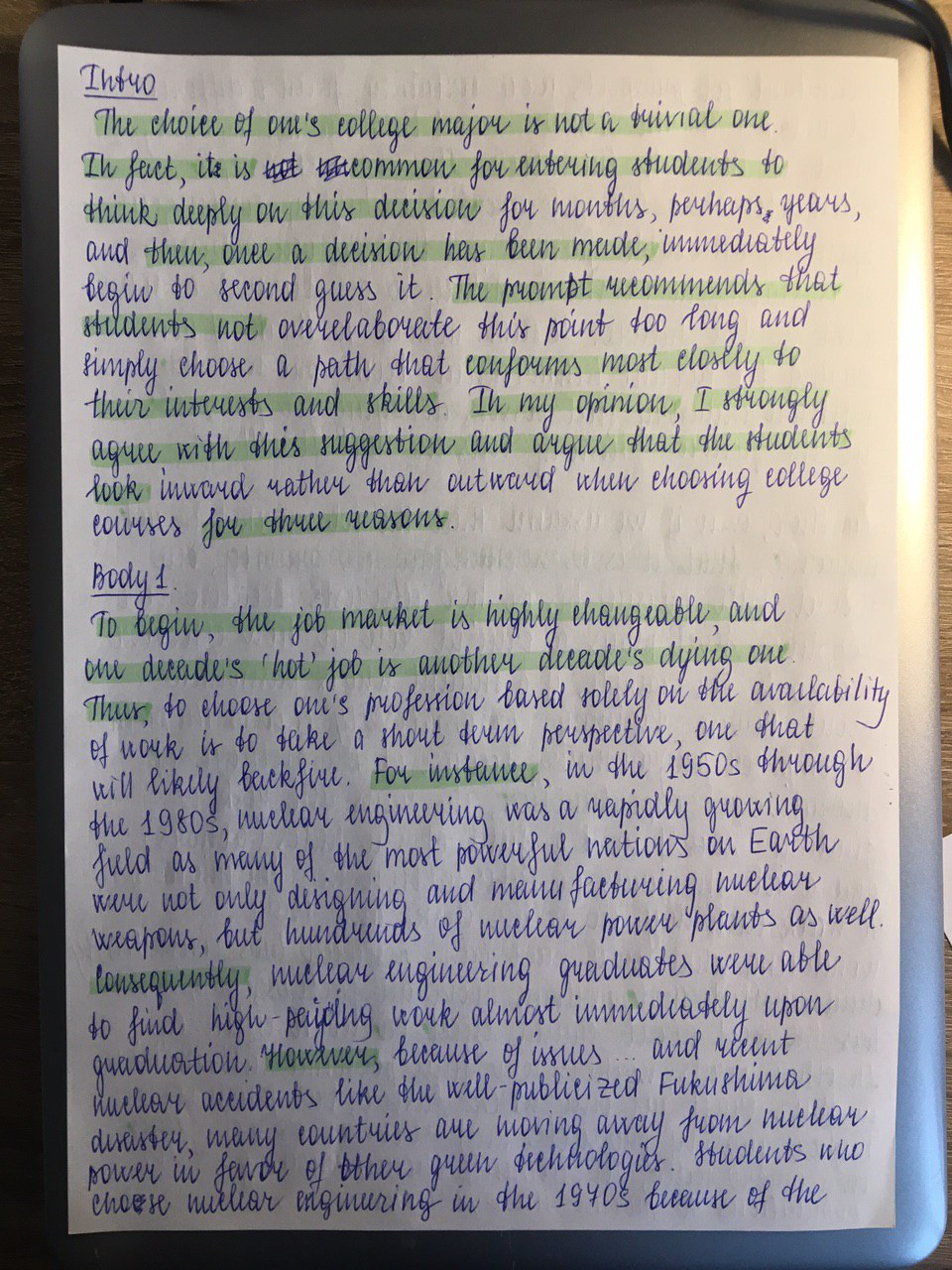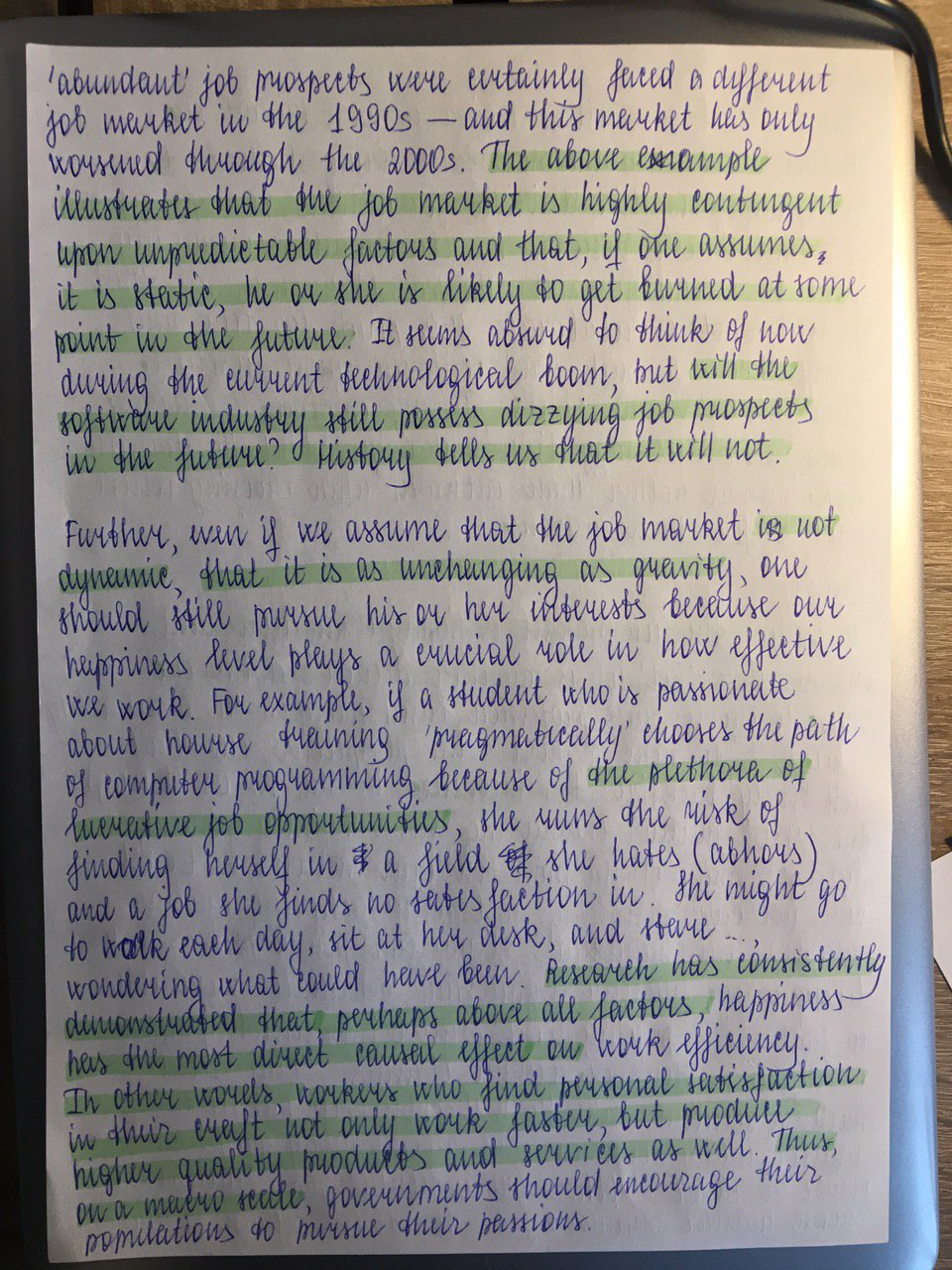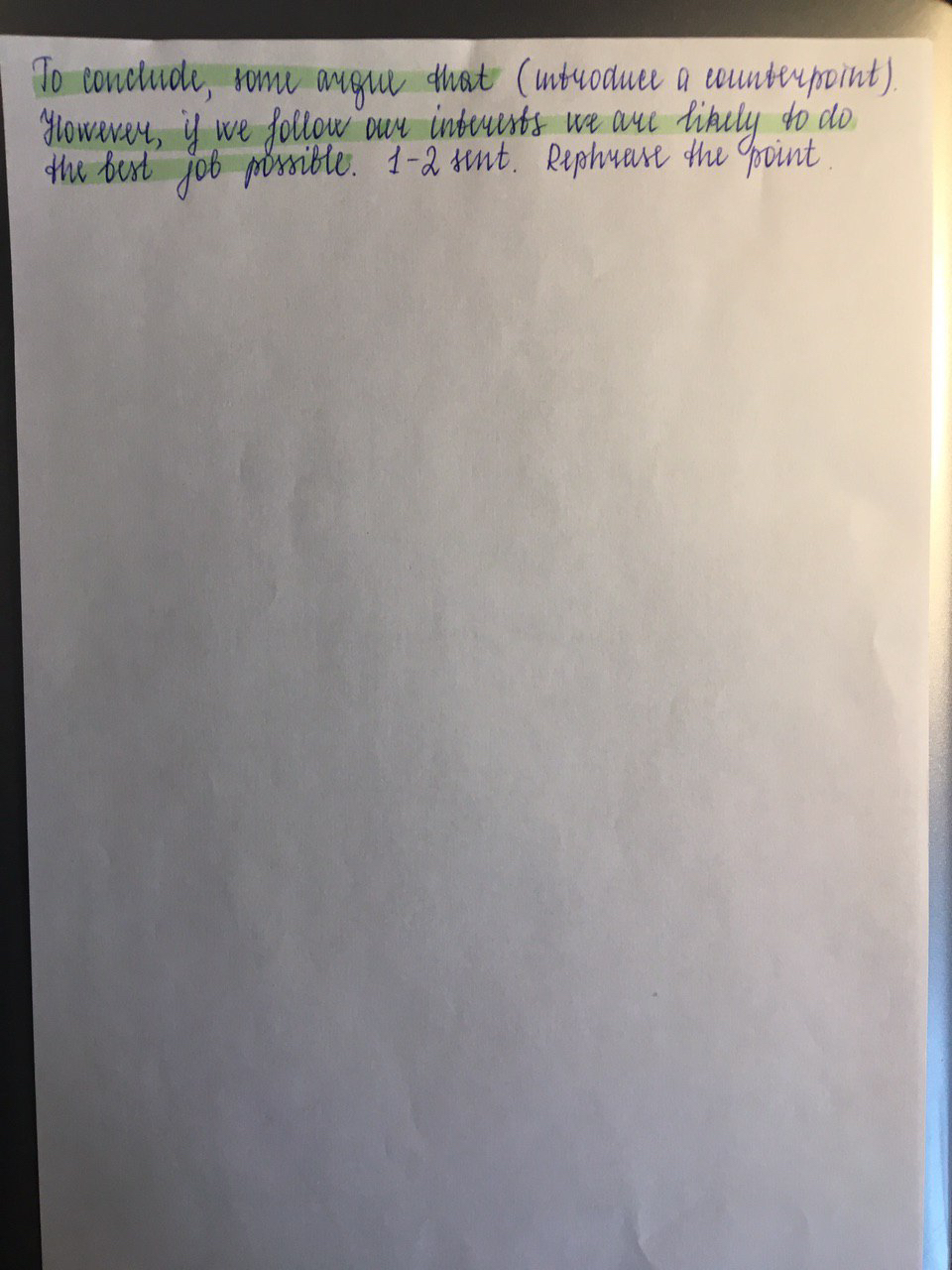IELTS, TOEFL, GRE
Published:
International exams insights
It’s been quite a while since I have passed my exams, however, I finally decided to accumulate all the information and insights that I have regarding these exams. So, firstly, I will talk about the differences between IELTS and TOEFL and what aspects you might consider while choosing either of these tests. Next, I will share a bunch of useful links for IELTS and TOEFL. Finally, I would like to mention some insights on GRE. Let’s start!
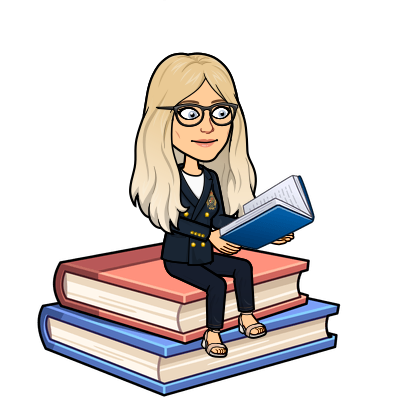
IELTS vs TOEFL
IELTS is a British test, whereas TOEFL is American. Therefore, if you aim to apply for the US universities it is better to take TOEFL as IELTS can be not accepted in some schools. IELTS is mostly suitable for European universities.
Another sticking difference is that IELTS is paper-based and TOEFL is computer-based. IELTS resembles a usual school test, when you sit in a room, listen to the recording, have a paper in front of you, and do the exam SIMULTANEOUSLY will all other examinees. TOEFL is purely computer-based and you start the exam as soon as you get to the computer. This leads to the following inconveniences. When I took TOEFL, I was one of the first to enter the room and my first task was Reading. I started the test and people continued entering the room and making some noise. This caused distraction and I had lower scores for reading. So my suggestion would be to enter the room the last, but keep in mind that you might experience distraction at the end of the test. However, the final parts might be less confusing as you already know what to write (writing is the last task, as far as I remember).
Next, IELTS speaking is held with a real person. For those who are comfortable taking in-person exams, this might be a good option: you do not have super strict time limits, you can ask to repeat or rephrase the question (but do not use “What?”, better phrases are “Sorry, could you, please, repeat the question”, “Pardon?”, “Would you mind repeating that?”, “Let me repeat that just to make sure?”). During TOEFL, you are speaking with a computer, so no way to hear the question again, very strict timing, and once again, EVERYONE will be talking at the same time in your room. Therefore, super useful lifehack from my Delft colleague - do not skip instructions during the test. Before each task, you are given instructions that are read to you. You have an option to skip them, and the majority of the people will do so, however, you can listen to them, allowing yourself to refresh your mind and fall behind a bit from others. Skipping instructions will not save you any time, so in my opinion, this is a great trick.
These are the main organizational points I wanted to cover, so now I will continue with more specific details.
Resources for TOEFL
Here, I will give the most important resources for TOEFL and IELTS. It is worth mentioning that I had a personal tutor while preparing for IELTS because I was not sure about my writing and speaking skills. While getting ready for TOEFL, I was already studying at TU Delft, so I was quite experienced and was comfortable self-studying. In general, I would say that it is 100% doable to prepare for these tests by yourself. Just your strong intention and time.
Vocabulary. Strong suggestion, do not use translation to your native language! Instead, use English-English dictionaries. By doing so, you always enlarge your vocabulary in terms of synonyms which are very important in these exams. For example, in writing tasks you will need to rephrase a single idea at least three times (in the intro, main body, and conclusion), therefore synonyms are a must. My favorite dictionary, which I have been using for about 10 years, is Cambridge Dictionary. Here, you will also immediately see how a word is used in different cases, which prepositions to use, what are the popular collocations.
Writing. Most of the points you will get if you write a lot. Therefore, I recommend learning a template that would be suitable for any topic. It is applicable for both IELTS and TOEFL. When I was writing TOEFL. It will help you to structure your essay so that the only thing you need during the test is to insert topic-related words. I got 29 points out of 30 for writing on TOEFL just because of these templates. Very very useful!
Integrated writing task
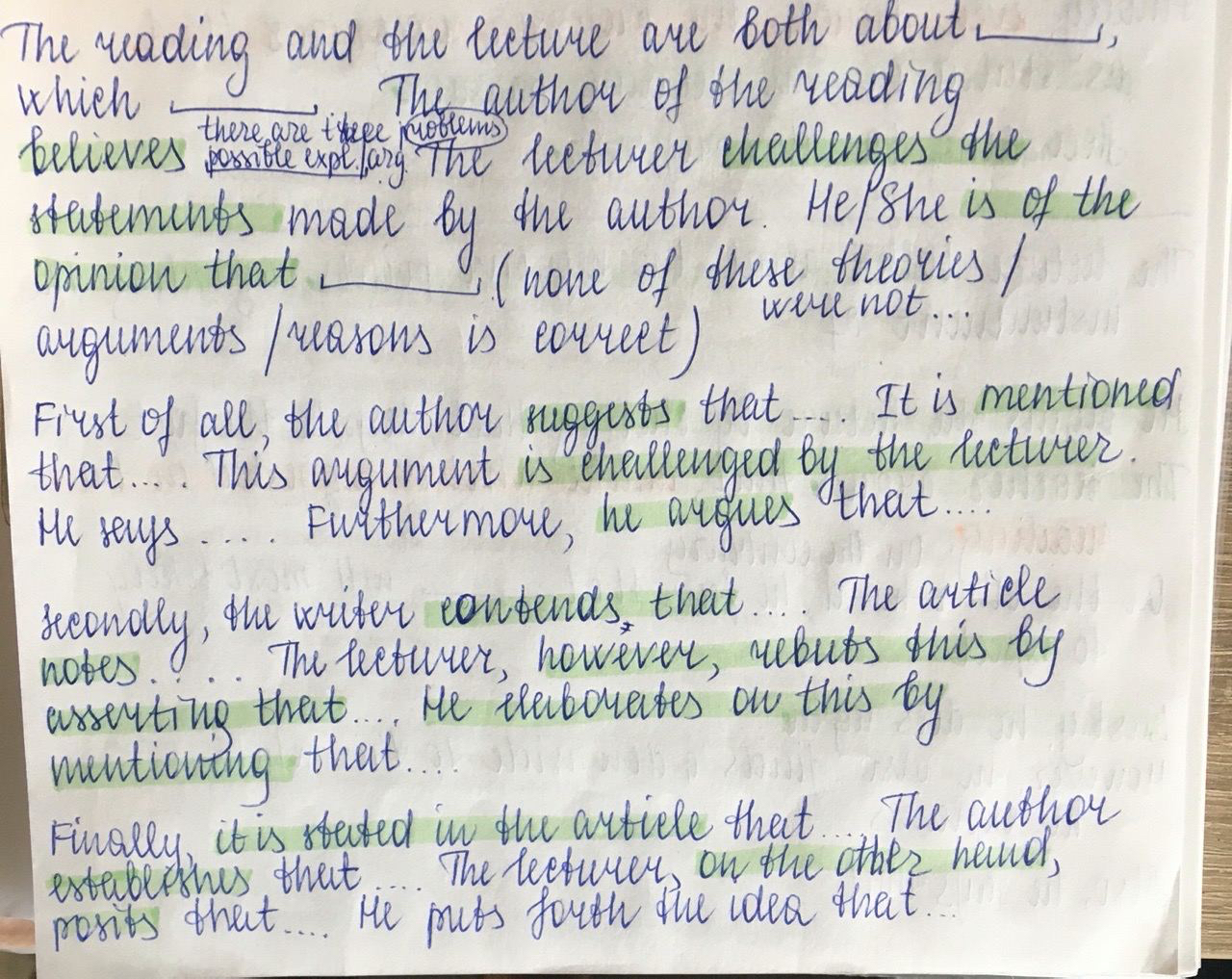
Independent writing task
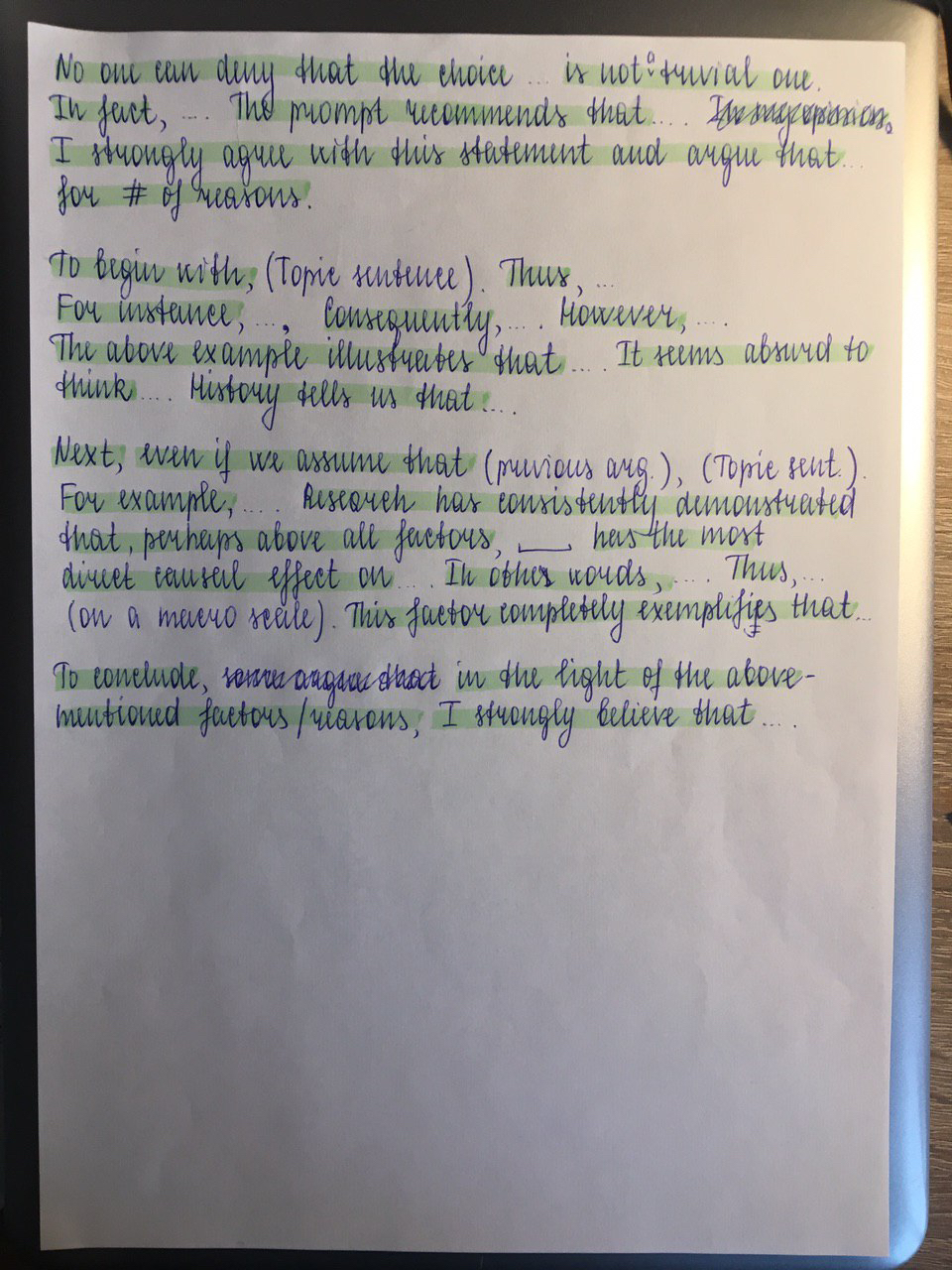
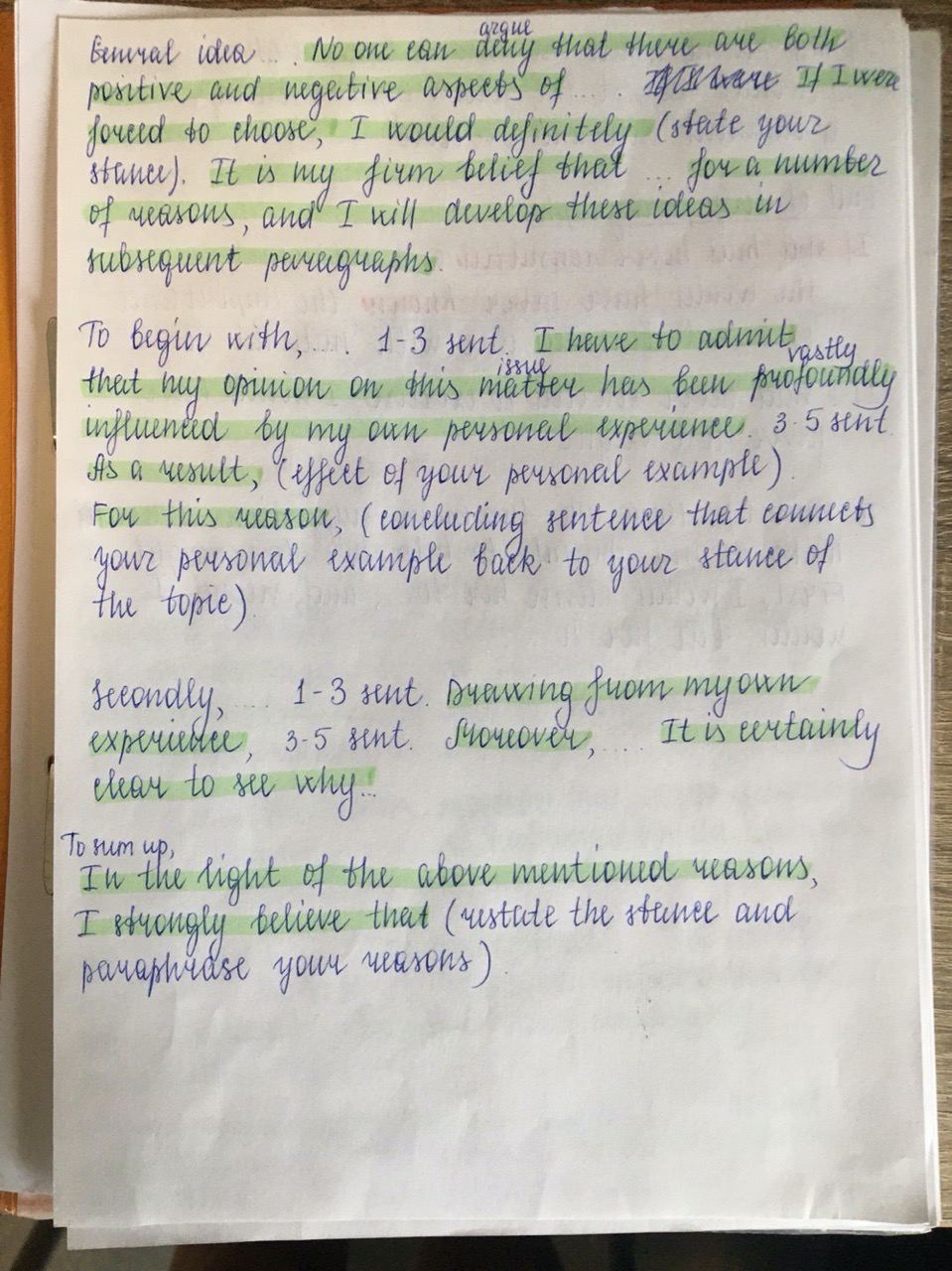
Speaking. Speaking templates are also worth learning by heart. While saying them, you will give yourself a few seconds on what to say next:
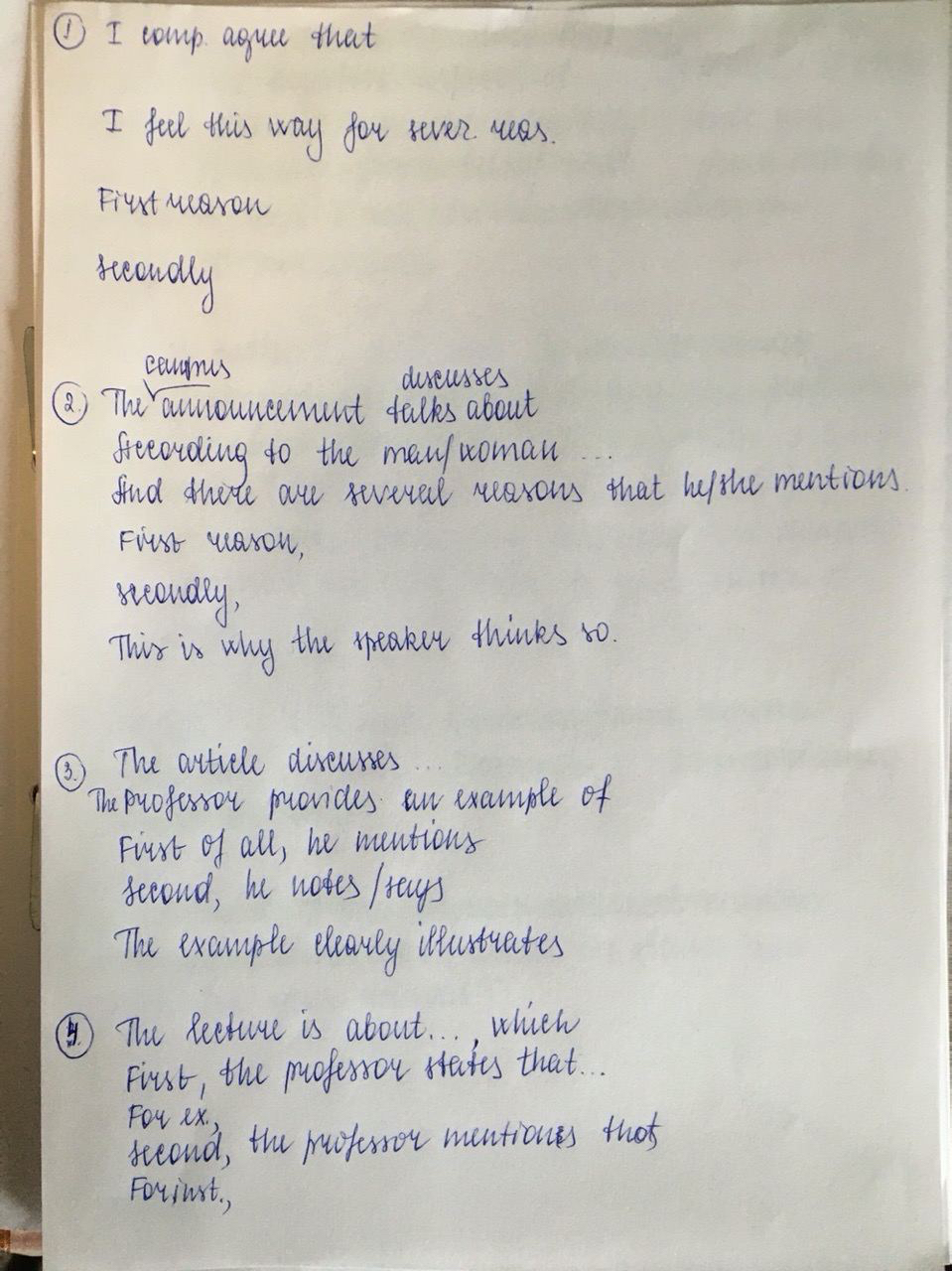
Resources for IELTS
I found this course incredibly useful. I did not buy anything, the free version is already very helpful. Especially for writing, again templates, structure, phrases: IELTS Academic Test Preparation
Vocabulary topics to practice speaking: IELTS Vocabulary/, IELTSLiz Vocabulary
Here I practiced listening: Practice tests
I used these essays as good inspiration and source of C1 phrases: 7 IELTS essay samples of band 9 students
For those who are Moscow-based, I strongly suggest taking a mock exam: Mock IELTS It helps you to put yourself into an exam setting and reveal your weaknesses. Moreover, they will give you detailed feedback which is also very helpful. If you do not live in Moscow, try to Google such opportunities in your location.
GRE
GRE is a big pain. I know that more and more grad schools are giving up on the GRE requirements but still I want to share my experience. For all tech-student, do not even try to study the vocabulary, it is almost impossible. The same colleague from Delft put everything at random and went to take a rest in the remaining time 😆 smart cookie! Instead, try to focus on maths. Sounds a bit weird especially if you have a maths degree. But! 1) you will be in a hurry, 2) there can be long prompts, especially for analyzing graphs, 3) tests have nothing to do with your mathematical knowledge. I failed my GRE maths part because I did not practice it much, unfortunately. As for the writing, the recommendations are the same as for TOEFL - just learn the template, and you are done! Here are my templates:
Analyze an Argument
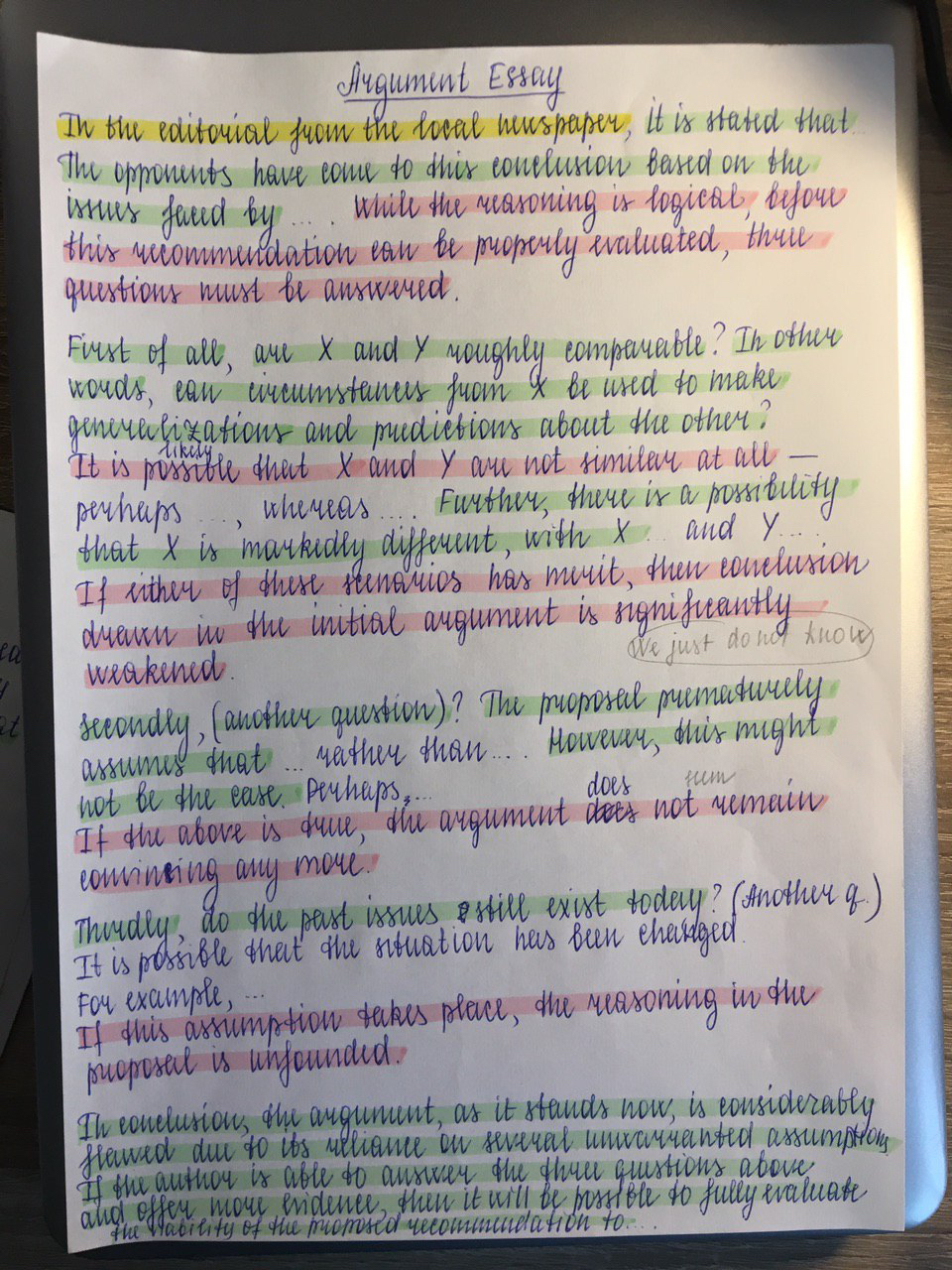
Analyze an Issue
